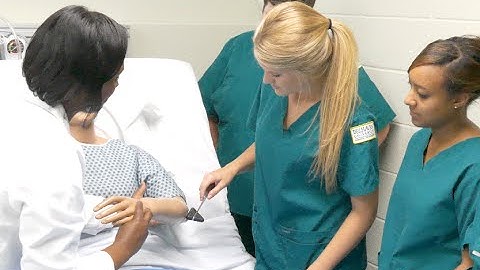Nursing Science
What is Nursing Science?
Nursing Science
Discipline: Academic and Professional Field
Nursing Science is the formal body of knowledge that serves as the foundation for professional nursing practice. It is a distinct scientific discipline focused on the study of health, illness, and the human experience across the lifespan. Rather than simply focusing on tasks, nursing science seeks to understand the why behind nursing actions, using rigorous inquiry to develop, test, and disseminate knowledge that improves patient care and health outcomes.
At its core, nursing science is dedicated to providing the evidence for Evidence-Based Practice (EBP), ensuring that clinical decisions are based on the best available scientific research, clinical expertise, and patient values.
The Four Metaparadigms of Nursing
Most nursing theories and research are built upon four central concepts that define the discipline's unique perspective:
| Metaparadigm | Description |
|---|---|
| Person (or Human Being) | The recipient of nursing care, including individuals, families, groups, and communities. The "person" is viewed holistically, with physical, psychological, social, and spiritual dimensions. |
| Health | A dynamic state on a continuum from wellness to illness. It is defined by the person in relation to their own values and life context, not merely the absence of disease. |
| Environment | The internal and external surroundings that affect the person. This includes physical settings (e.g., a hospital room), social relationships, culture, and the broader healthcare system. |
| Nursing | The actions, characteristics, and attributes of the nurse who provides care on behalf of, or in conjunction with, the person. It encompasses the art and science of care, therapeutic communication, and clinical judgment. |
Key Domains of Inquiry in Nursing Science
Nursing science is a broad field with numerous areas of specialization. Research within these domains generates the knowledge needed to address complex health challenges.
| Domain | Focus Area | Example Research Questions |
|---|---|---|
| Symptom Science | Understanding and managing the subjective experience of symptoms like pain, fatigue, nausea, and dyspnea. | - What are the bio-behavioral mechanisms of chronic pain in cancer survivors?<br>- How can non-pharmacological interventions reduce fatigue in patients with multiple sclerosis? |
| Health Promotion & Disease Prevention | Developing and testing interventions to promote wellness and prevent illness in diverse populations. | - What is the most effective strategy to increase HPV vaccination rates among adolescents?<br>- How does a community-based exercise program impact cardiovascular risk in older adults? |
| Palliative & End-of-Life Care | Improving the quality of life for patients and families facing serious, life-limiting illness. | - How can nurses better facilitate communication about end-of-life preferences?<br>- What interventions are most effective for managing anxiety in hospice patients? |
| Health Systems & Quality Improvement | Investigating how to organize and deliver care to improve patient safety, efficiency, and equity. | - What is the impact of nurse-to-patient ratios on hospital-acquired infection rates?<br>- How can health informatics be used to prevent medication errors? |
| Self-Management | Studying how to support individuals and families in managing chronic conditions. | - What mobile health (mHealth) tools best support self-management for young adults with Type 1 Diabetes?<br>- How does family involvement influence adherence to treatment plans? |
Foundational Figures and Milestones
While countless individuals have contributed to the field, some figures are pivotal in its development as a science.
- Florence Nightingale (1820-1910): Widely considered the founder of modern nursing, she was also a pioneering nurse scientist. She used statistical data and graphical representations (like her famous "coxcomb" charts) to demonstrate the link between sanitation and mortality rates among soldiers in the Crimean War. Her work, Notes on Nursing, laid the groundwork for evidence-based practice.
- Post-WWII Expansion: The mid-20th century saw a significant push to define nursing as a formal academic discipline, leading to the development of doctoral programs (PhD, DNS) and the establishment of major nursing theories by scholars like Virginia Henderson, Jean Watson, and Patricia Benner.
- National Institute of Nursing Research (NINR): The establishment of the NINR in the United States in 1986 was a landmark event, officially recognizing nursing science as a major field of biomedical and behavioral research worthy of federal funding and support.
Latest Questions for Nursing Science (60)
Videos for Nursing Science

Nursing Science: Victoria Marshall, PhD, RN
usfhealth

What is nursing science?
Rutgers School of Nursing

Webinar recording: Master of Nursing Science, University of Otago, Christchurch
University of Otago - Ōtākou Whakaihu Waka

Nursing Science
UAMS

Who Advances Nursing Science in Clinical Settings and How?
American Academy of Nursing

Master of Nursing Science (MNSc)
University of Otago - Ōtākou Whakaihu Waka

Nursing Science Without Limits Series Introduction
usfhealth

Bachelor of Science in Nursing Degree at Belhaven
Belhaven University

Acid - Base ImBalance || Fundamentals Of Nursing | #saralnursingclasses #fon
सरल Nursing Classes

Master of Science in Nursing
uwindsor

Graduate Diploma in Nursing Science | The University of Adelaide
Health & Medical Sciences - University of Adelaide

Accelerated Bachelor of Science in Nursing Program
MGH Institute of Health Professions

Bachelor of Science in Nursing: Preparing Top-Tier Nurses
University of Maryland School of Nursing

Master of Science in Nursing Leadership
Rutgers School of Nursing

What is Nursing Science (3 Minutes)
BioTech Whisperer

Bachelor of Science in Nursing
Columbia College

Study a Master of Nursing Science at AUT
AUT - Auckland University of Technology

看護学士(BSN)学位とは?看護師サラのQ&A
RegisteredNurseRN

Discover how to become a nurse
The University of Melbourne

Nursing Science Ph.D. Program
Graduate School of Biomedical Sciences at UT Health San Antonio
How to Get $FAQ Rewards
We are seeking contributions from many people to reach 100 million questions. We will provide $FAQ token rewards to all contributors
- 1. Ask questions to earn $FAQ rewards
- 2. Provide API_KEY to earn $FAQ rewards
- 3. Random drops of $FAQ rewards when browsing questions
 How do you want others to perceive you when you take off your nurse uniform?
How do you want others to perceive you when you take off your nurse uniform?